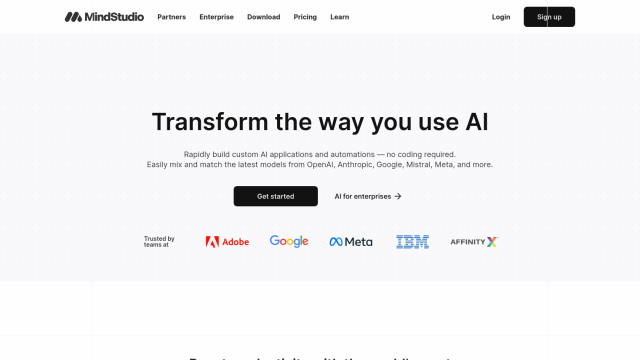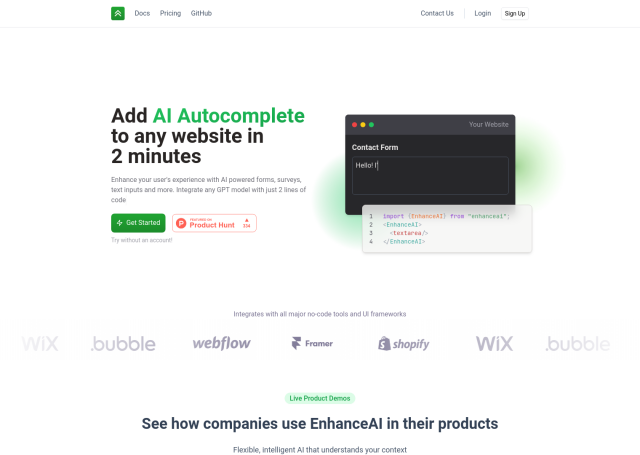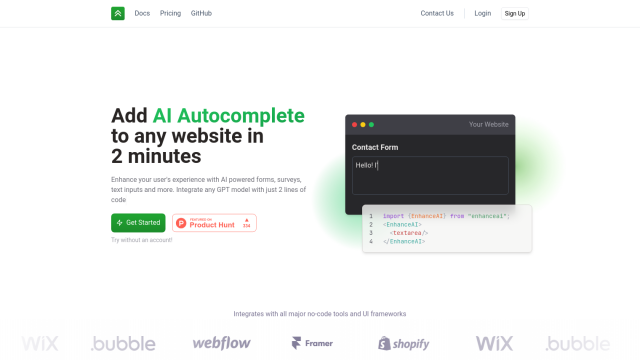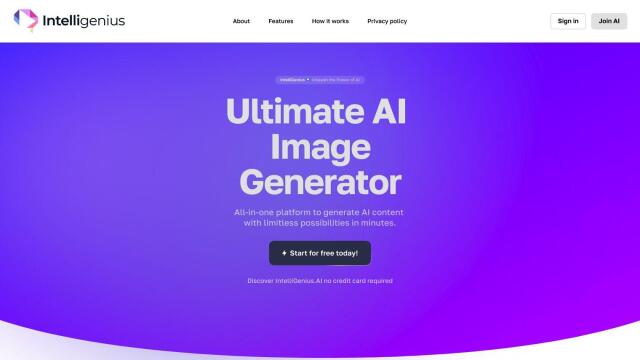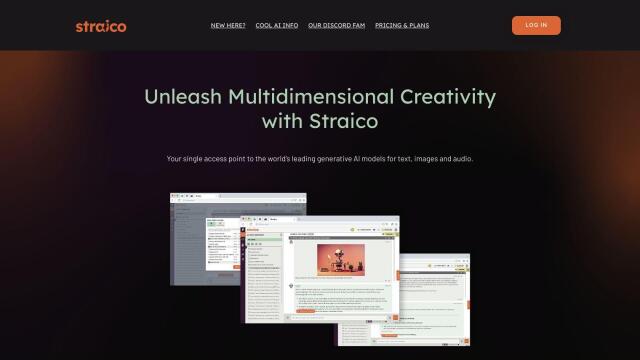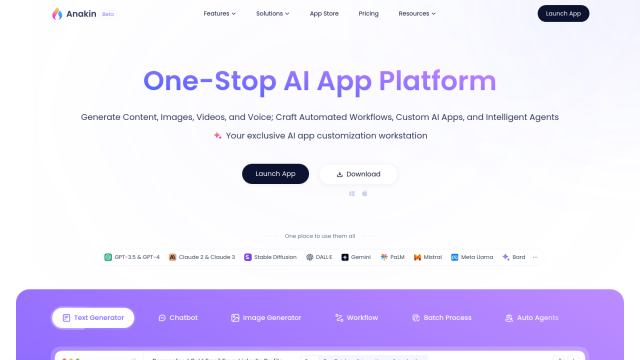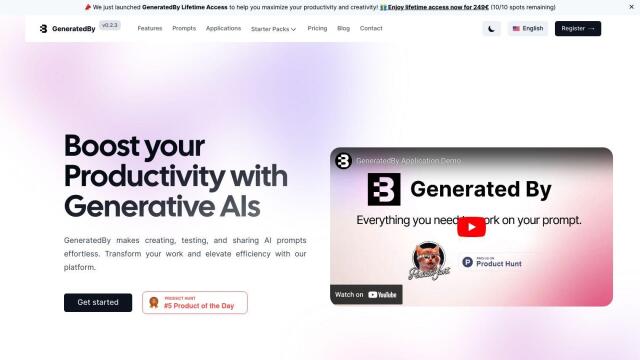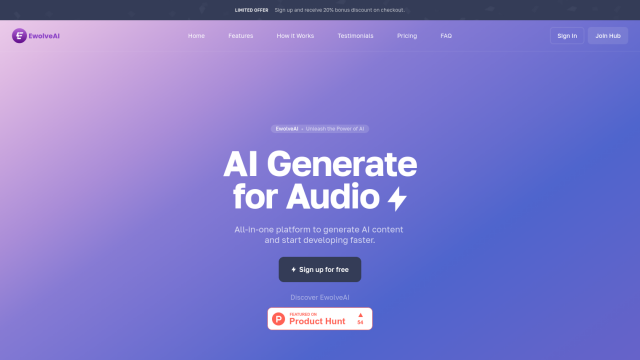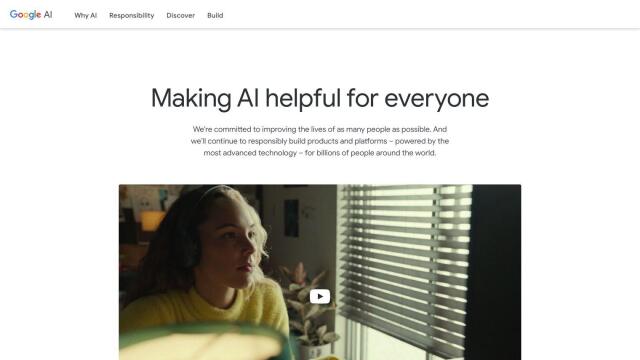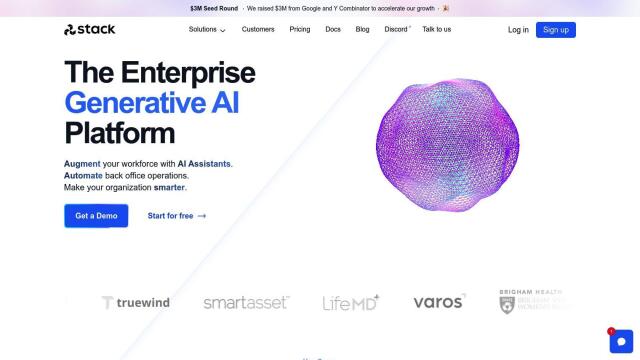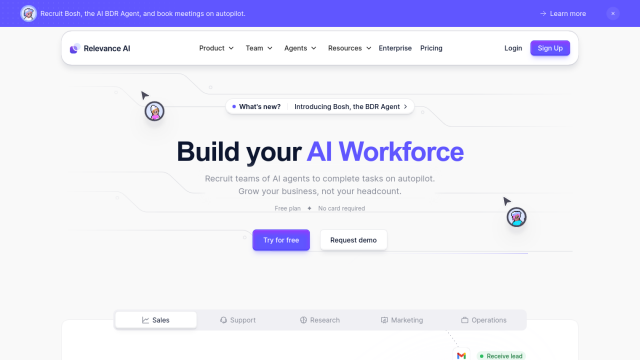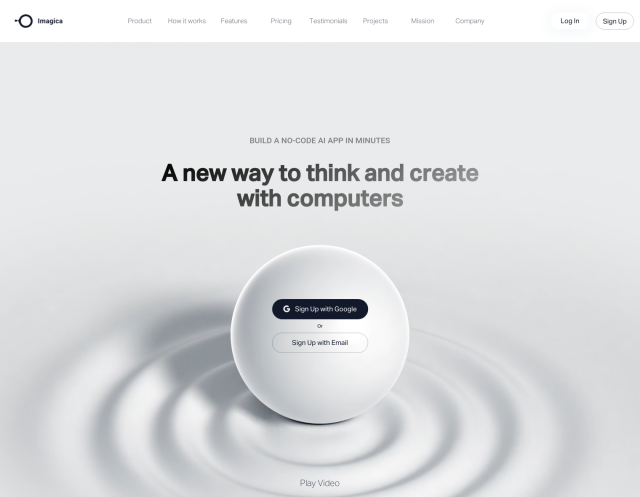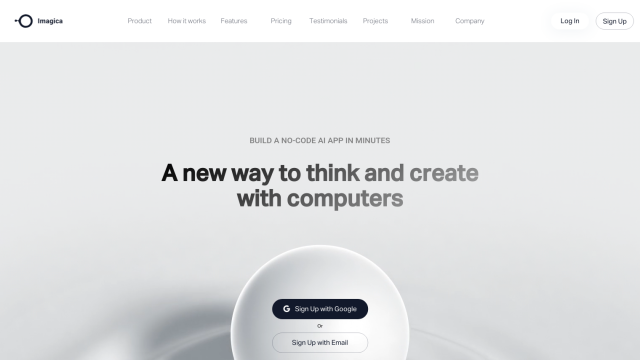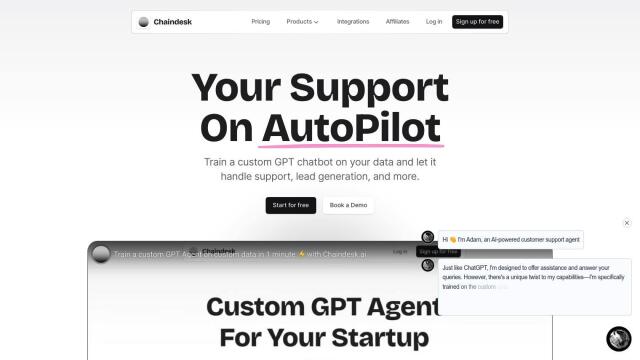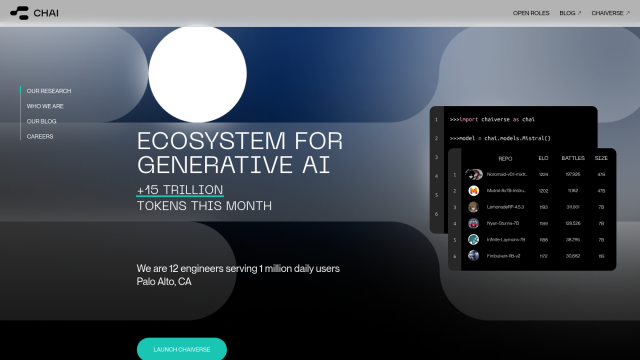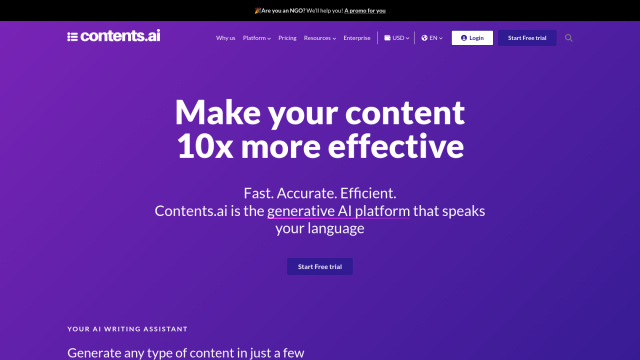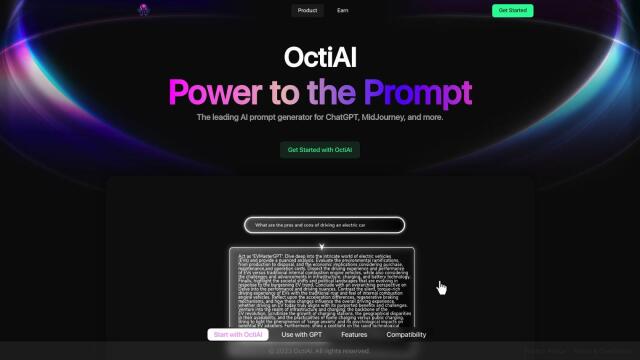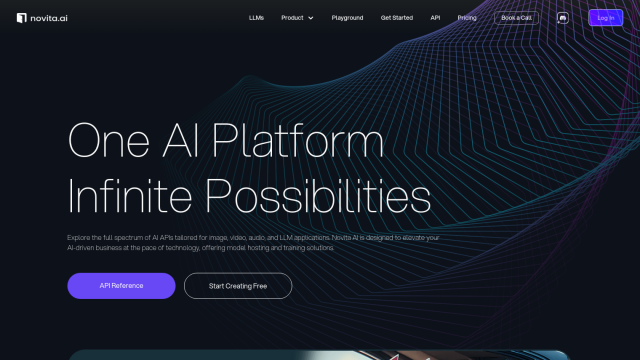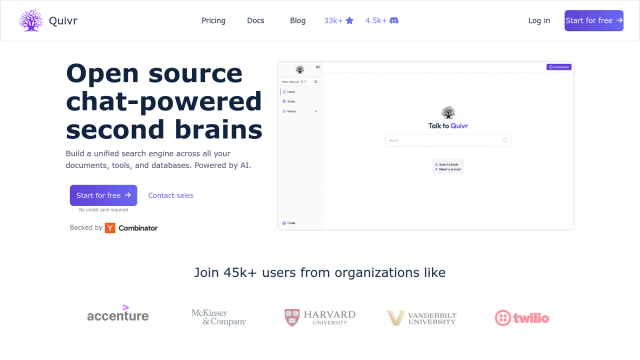Question: I need a solution that allows me to easily incorporate AI-powered text processing and generation into my application, do you know of any?

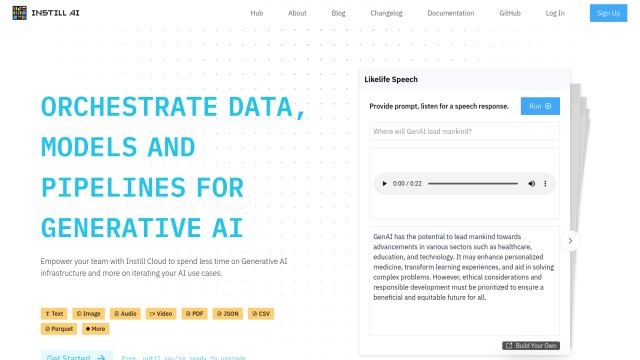
Instill
If you're looking for a way to add AI-powered text processing and generation to your app, Instill is a good option. It's a no-code/low-code foundation that handles data, models and generative AI pipelines. Instill's features include speech responses, webpage summarization, SEO article generation and object detection, and it's designed to make it easier to build AI apps. Instill is designed to be flexible and scalable, with open-source components and a drag-and-drop interface for custom pipelines, and it's designed to be easier to deploy AI models and manage infrastructure.


Dify
Another good option is Dify, an open-source foundation for building and running generative AI applications. It includes a visual Orchestration Studio for designing AI apps with tools for secure data pipelines, prompt design and model tuning. Dify also offers customizable LLM agents, fast chatbot and AI assistant deployment and creative document generation. Its tiered pricing options accommodate different business needs, making it a good option for adding AI securely and efficiently.


Abacus.AI
If you're looking for a broader AI foundation, check out Abacus.AI. The company's platform lets developers build and run applied AI agents and systems at scale, including generative AI and other neural network techniques. It offers products like ChatLLM for building RAG systems and AI agents for automating complex workflows. Abacus.AI also offers predictive and analytical abilities, so it's good for customer service, optimizing operations and predicting sales and revenue.

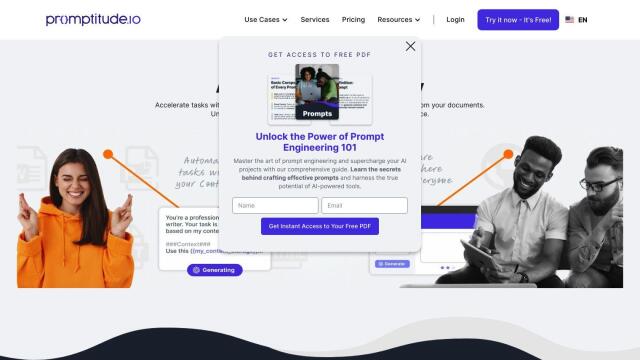
Promptitude
Last, Promptitude is an interface for adding Generative Pre-trained Transformers (GPT) to your apps. It lets you securely manage and iterate on GPT prompts, which is good for personalized, high-quality results. With features for reusable prompts, secure sharing and user management, Promptitude is good for a variety of use cases, including AI text generation and creative assistance.





